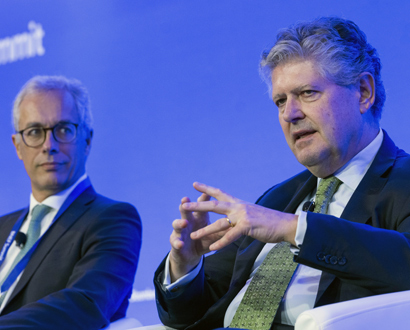Andy Inglis, the Chairman and Chief Executive Officer of Kosmos Energy, has said that Africa has the potential to emulate countries such as the United States in transforming into a gas powerhouse and providing more affordable gas prices.
Expressing a positive outlook regarding Africa’s gas reserves and drawing comparisons with well-established exporters such as Qatar, Australia, and the United States, Inglis, while speaking at the Africa Energy Week in Cape Town on Tuesday, highlighted the continent’s extensive natural gas assets. He encouraged African countries to focus on utilising their domestic gas resources to stimulate economic development and tackle the significant energy shortages the continent faces.
“Africa has the resources to become a gas powerhouse. It can emulate the United States by keeping gas prices low and ensuring local availability, which would significantly drive economic growth. This approach could bring affordable power to millions across Africa, addressing the energy needs of the continent’s rapidly growing population,” Inglis said.

Inglis underscored the importance of looking beyond separate initiatives within individual countries, calling for cross-border partnerships and integrated infrastructure that would extend the advantages of natural gas development throughout the continent.
He pointed out that by creating interdependent energy systems, African nations could achieve energy security and guarantee affordable electricity access for underserved communities.
According to Inglis, his organisation has been involved in a significant project: the Greater Tortue Ahmeyim (GTA) gas project, an innovative cross-border liquefied natural gas (LNG) venture between Mauritania and Senegal. Kosmos Energy initially drilled the field independently in 2015 and subsequently teamed up with the national oil companies (NOCs) of both nations to finalise the essential agreements.

“The time spent building trust and alignment from day one made all the difference,” Inglis explained. “Monthly face-to-face meetings helped us work through challenges, build understanding, and secure a cross-border unitisation agreement—a first in the region.”
Kosmos adopted a more efficient method for the GTA project by utilising a Floating Production Storage and Offloading (FPSO) unit converted from existing resources. By capitalising on proven technology instead of creating new systems, Kosmos minimised costs and sped up timelines, providing advantages to stakeholders, including Ghana, more quickly.
This approach, according to Inglis, embodies a critical lesson for future developments: “Keep it simple. It’s easier to communicate with governments, align with national oil companies and build partnerships with other stakeholders when the project remains straightforward and focused on delivering shared benefits,” he said.


